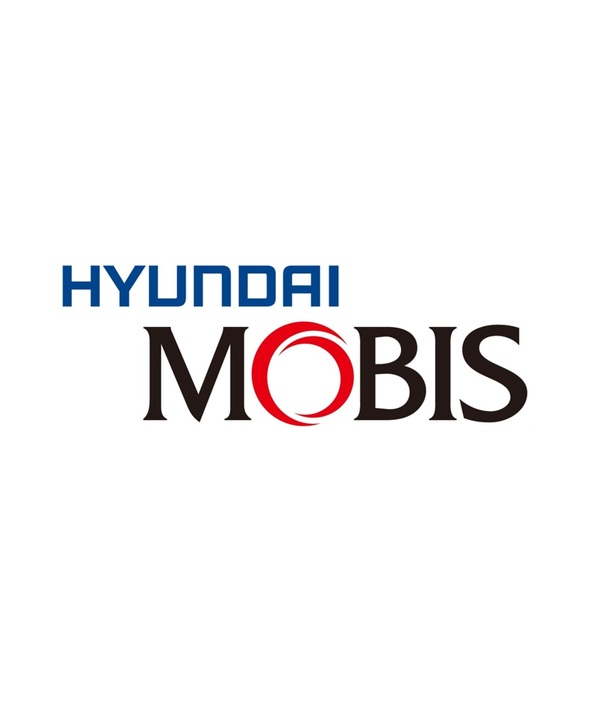 |
SEOUL, South Korea, Oct. 3, 2024 /PRNewswire/ -- Hyundai Mobis has unveiled 65 mobility technologies slated for commercialization within the next two to three years. This milestone achievement results from concentrating this year's record-high R&D investment of approximately 1.7 trillion KRW on electrification and electronics. Hyundai Mobis remains committed to its R&D strategy, which aims to proactively secure future competitiveness in the rapidly evolving global automotive industry.
On the 4th, Hyundai Mobis held the '2024 R&D Tech Day' at its Uiwang Research Center in Gyeonggi Province, inviting major domestic media outlets. Tech Day is an event where Hyundai Mobis traditionally showcased its research and development achievements to clients every other year. This year, however, the company opened the event to external stakeholders, demonstrating its confidence in the results of its future mobility R&D development outcomes.
The Electrification Research Building, where the Tech Day was held, is a specialized research facility dedicated to next-generation electrification technologies, completed at the end of last year. It plays a pivotal role by consolidating the development of key electrification components, including R&D, testing and evaluation, and quality analysis, all under one roof.
Hyundai Mobis chose 'Collective Inspiration' as the theme for this Tech Day, symbolizing the integrated collaboration across all related departments in R&D to provide a comprehensive mobility integrated solution.
The exhibition featured seven themes and presented 65 key technologies in sectors such as electrification, electronics, and safety, including 14 world-first innovations. A Hyundai Mobis representative explained, "These achievements were made possible by advancing preemptive projects aligned with mobility trends, fostering a flexible R&D culture, and securing top talent through substantial investments."
On the same day, Hyundai Mobis announced its three core development strategies for electrification components: drive systems, battery systems, and power conversion systems. Building on the expertise gained since developing hybrid battery systems, motors, and inverters in 2011, Hyundai Mobis aims to lead the industry with electrification solutions specialized for unit components, systems, Advanced Automotive Mobility (AAM), and robotics.
Lee Young-Kook, Vice President of Hyundai Mobis's Electric Powertrain Engineering Division stated, "Despite external environmental changes such as the Chasm, hundreds of researchers at the Uiwang Research Center are diligently pursuing uninterrupted R&D activities," adding, "Hyundai Mobis's competitiveness in electrification components is recognized as top-tier by global customers, and many international clients, including those from Europe, are expected to attend this year's R&D Tech Day."
Among Hyundai Mobis's three core electrification component strategies, the drive system is represented by a 3-in-1 integrated drive system combining motors, reduction gears, and inverters. Key focuses include miniaturizing the system, high-efficiency electromagnetic design, oil cooling, and power module technology. Building on this, specialized drive systems for PBVs and AAMs are also under development.
The battery system strategy emphasizes thermal management stabilization technology. The goal is to develop systems with inherent heat resistance and flame retardancy to prevent thermal transfer rather than merely delay it. Additionally, Cell-to-Pack technology, which skips the module stage to directly assemble packs from cells, is concentrating on increasing energy density. Future initiatives include next-generation battery cells and advanced technologies utilizing recycled batteries as new business ventures.
The power conversion system strategy focuses on developing the next-generation Integrated Charging Control Unit (ICCU), which incorporates the Electric Vehicle Communication Controller (EVCC). This advancement is expected to realize Vehicle-to-Everything (V2X) connectivity for electric vehicles, linking cars with charging infrastructure and smart home functionalities. Concurrently, Hyundai Mobis is accelerating the development of necessary power semiconductors.
Over recent years, Hyundai Mobis has consistently participated in global exhibitions, including CES. These events serve dual purposes: enhancing brand recognition among general audiences and actively utilizing them as business channels for securing orders from international clients.
The unprecedented number of exhibits unveiled at this year's R&D Tech Day is a testament to this strategy. Of the total 65 exhibits, 21 were electronic components, the highest proportion. The majority showcased technologies in autonomous driving, advanced sensors, parking assistance systems, next-generation displays, and connectivity encompassing infotainment innovations.
Key products included a high-performance front radar with an extended detection range of 350 meters, an infrared camera with improved recognition capabilities under adverse weather conditions, generative AI specialized for vehicle care, and a 3D display with an expanded field of view.
Electrification components were presented in next-generation product lines tailored to market trends and customer requirements. Notable examples included in-wheel motors capable of crab steering, next-generation drive systems for compact trucks specialized for urban transportation, and bidirectional ICCUs with high power density.
In the safety and chassis sectors, Hyundai Mobis attracted attention by introducing world-first technologies in major core component areas such as airbags, lamps, braking, and steering systems. Highlights included a passenger-side airbag designed to reduce brain injuries during collisions, communication headlamps that interact with surrounding road conditions using HD LEDs, a third-generation regenerative braking system, and a rear-wheel steering system recognized as an innovative technology by North American automotive publication Automotive News.
Additionally, other standout innovations included a core device made from nickel-free metal powder without using expensive rare metals like nickel for inductors, ultra-high-speed battery charging cooling technology, e-corner systems enabling crab steering, and the next-generation infotainment integrated system M.Vics 4.0, all of which captivated the audience's attention.
About Mobis
Mobis is the global no. 6 automotive supplier, headquartered in Seoul, Korea. Mobis has outstanding expertise in sensors, sensor fusion in ECUs and software development for safety control. The company's products also include various components for electrification, brakes, chassis and suspension, steering, airbags, lighting, and automotive electronics. Mobis operates its R&D headquarters in Korea, with four technology centers in the United States, Germany, China and India. For more information, please visit the website at http://www.mobis.com
Media Contact
Choon Kee Hwang : ckhwang@mobis.com
Myong Sun Song: sms@mobis.com